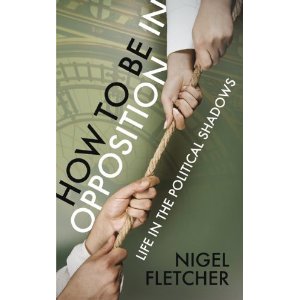How should the official opposition operate?
 ‘Her Majesty’s Loyal Opposition’ is the full title for the largest non-government party in Parliament and has been around long enough for the oddity of its phrasing to be easily overlooked. But “Her Majesty’s”? And “Loyal”? They come from the idea that, however much those in power may wish the opposition to firmly stay out of power, there is a recognition that an effective Parliamentary democracy requires an effective opposition. “Loyal” too reflects the willingness of those who have lost an election to accept the result. Calmly leaving office, or accepting another period in opposition, may be a long established part of the British political tradition but a glance at the political tumult in other countries after elections is a reminder of how important and welcome a part it is too.
‘Her Majesty’s Loyal Opposition’ is the full title for the largest non-government party in Parliament and has been around long enough for the oddity of its phrasing to be easily overlooked. But “Her Majesty’s”? And “Loyal”? They come from the idea that, however much those in power may wish the opposition to firmly stay out of power, there is a recognition that an effective Parliamentary democracy requires an effective opposition. “Loyal” too reflects the willingness of those who have lost an election to accept the result. Calmly leaving office, or accepting another period in opposition, may be a long established part of the British political tradition but a glance at the political tumult in other countries after elections is a reminder of how important and welcome a part it is too.
Despite all this, the art of opposition is little studied in Britain, something that the recently formed Centre for Opposition Studies is trying to remedy and How to be in opposition: Life in the political shadows is their first book. Bringing together the knowledge of eight contributors, it acts as a guide to many of the basics of opposition.
Because there has been no comparable previous publication, it spends much time detailing some of the procedural and historical details of oppositions. That makes the book an extremely useful reference source, albeit at the cost of being lighter on the more strategic questions.
It is often said that ‘oppositions do not win elections, governments lose them’. That frequency does not however mean it is a view that is uncontroversial, as is shown by the post-May 2010 debates over whether the Conservative Party’s failure to win an overall majority was because it had failed to do what was necessary to win. And if did, was that because it did not spend enough time attacking the government or because it spent too much time on that and not enough on putting forward its own positive alternative?
On those major questions the book sheds little light, especially as the two contributions from politicians who were in opposition are the weakest. Both Gillian Shephard’s piece (on life in the Conservatives after their 1997 landslide defeat) and Neil Kinnock’s (on his time leading Labour) have much interesting content but only tell a small part of the story of their times.
Shephard’s is a reprint of extracts from her 2000 memoirs, and so were written as if the Conservative Party post-1997 was doing an excellent job in opposition and just about to return to power. After another two heavy election defeats, the lessons for oppositions from the Conservative experience of 1997-2000 now look very different.
Neil Kinnock’s account does not have the same problem, but with the lack of mention of the infamous Westland Parliamentary debate – a debate when many people expected an effective speech from Kinnock would force Thatcher to resign but one where his oratorical skills lost out to verbosity – it too does not tell a rounded story. Where Kinnock’s contribution shines is in its account of how oppositions can easily become inward looking and blame the public for their fate. That is not a route back to power.
Good too are the details in many of the other contributions, especially the way Parliamentary procedures work for the opposition and the history of resourcing for oppositions.
The book provides many sharp anecdotes from different oppositions, including the Yes Minster style struggles by Harold Wilson when in opposition to get a key to the opposition offices in Parliament from the Parliamentary authorities so that they could be used at weekends and when Parliament was in recess. It would appear he never did get the key.
As the book’s endnote says,
‘How to be in opposition’ is therefore not just a topic of self-serving interest to politicians. It is essential to ensuring we are better governed, in both the short and longer term.
The book is a welcome contribution to those ends and contains some useful tips not only for those in opposition in Westminster but in other elected bodies too.
You can buy How to be in opposition: Life in the political shadows, edited by Nigel Fletcher, here.
Leave a Reply